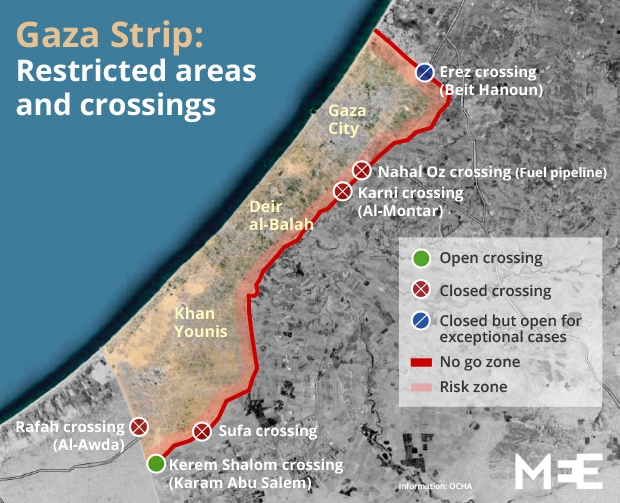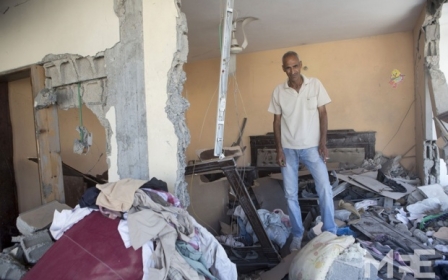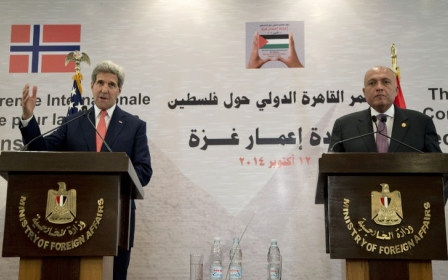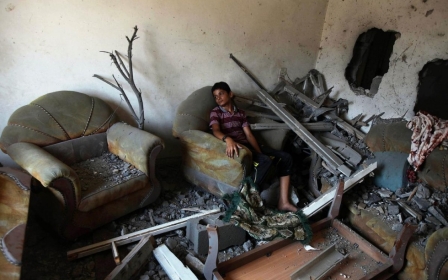Border closure means lost jobs in Sinai, rebuilding deadlock in Gaza
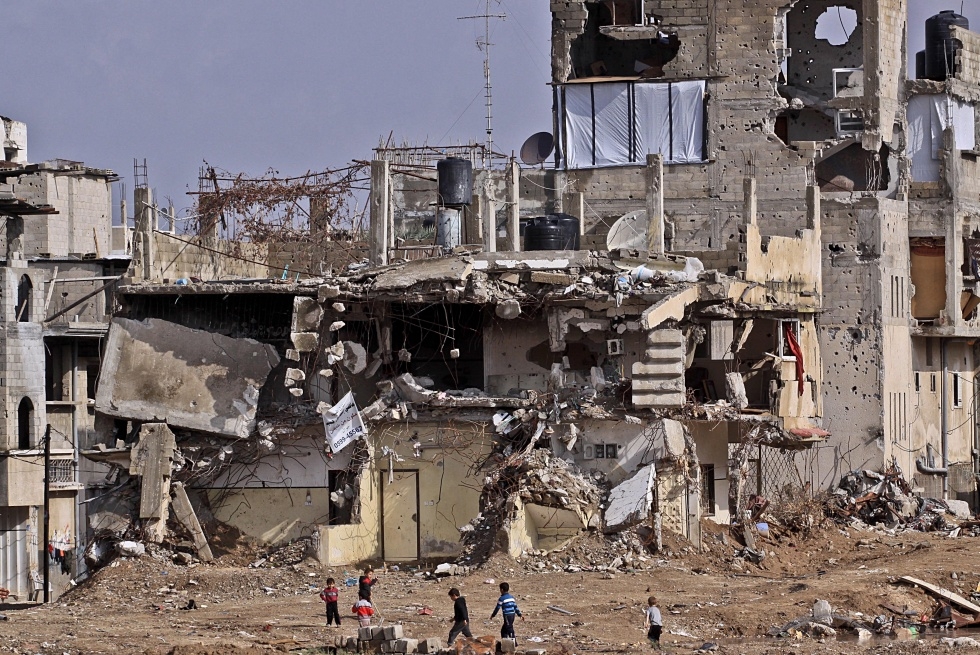
SINAI - Gaza’s reconstruction is being held up by the closure of the Rafah Crossing following a militant attack on Egyptian troops last month, with an estimated $3.4 mn in key materials sitting on the Egyptian side of the border.
After the 24 October strike - which killed 31 Egyptian soldiers and was one of the deadliest attacks on the Egyptian military in decades - Egypt’s National Defense Council vowed the army would take “revenge for the shedding of dear blood.”
The country’s authorities declared a three-month state of emergency in the northern Sinai Peninsula and gave residents days to move out of their homes before they began demolishing 800 or more to create a buffer zone along its border with Gaza. The Rafah Crossing was shuttered as well.
This was a change both from just before the war on Gaza this summer, when small numbers were allowed through every fortnight at the request of Saudi Arabia for trips to Mecca, and just after the war, when those who were urgently seeking healthcare, as well as student and Palestinians holding residents permits, could travel abroad.
The closure of Rafah - and the subsequent construction materials left sitting at the border - has caused an uproar among owners of several Egyptian companies who pay around $5,500 a day to store their goods and trucks and wait. There is no sign that the crossing will be open any time soon.
“We have stocked massive quantities of materials on the border, and got our labour and machines working in the mountains to bring aggregate [from Sinai] to Gaza,” said the owner of one of 12 Egyptian investment companies that are expected to take part in rebuilding Gaza following Israel’s war.“But until this moment, nothing is getting through, which will negatively affect the labour force in Sinai,” said the owner who preferred not to give his name because he said he wasn’t authorised to speak about the situation.
Another impacted company is El-Arish-based Sons of Sinai Company which has signed exclusive deals with the Palestinian Works Ministry to take part in Gaza reconstruction. Officials in Sinai said the company was selected on the basis of its practice of employing labourers from local Bedouin tribes.
In 2013, Sons of Sinai brought in materials to supply a Qatari-funded project for road upgrades and to build clinics, with 400,000 tons of gravel allowed through, in addition to 50,000 tons of cement and 15,000 tons of steel. Company advisor, Ahmed Fekri said his firm has paid $1.3 mn for trucks that went into the Gaza Strip over the past year.
But now Sons of Sinai officials say that they need the crossing to open in order to meet the promises they have made to the Palestinians. The company has recently received a request from the Palestinian Public Works Ministry for construction materials.
And it’s not just Palestinians they are worried about: Fekri said the closure of the crossing means that 1,200 Bedouin workers in Sinai have been laid off.
“It’s not only Palestinian interests that are hit by the closure, but the tribes in Sinai are hit, too,” said Abu Salah, an Egyptian truck driver who usually operates at Rafah Crossing. Even before the attack and following the war on Gaza, he said, no construction materials were allowed through.
In addition to its close proximity to Gaza, Sinai’s natural resources - including the raw materials for cement, gravel and fertilizer - are ideal for trade and development in both the Peninsula and Gaza. But instead, deprived for decades and bypassed by government support and subsidies, Sinai has also become a hub of poverty, with an increasing number of beggars on the roads of El-Arish and a growing number of violent groups operating in the vicinity.
“There is so much destruction in Gaza - we have the means to help by selling our resources and construction materials, but we can’t do this when the gates are closed,” Abu Salah said.
Even if the border was open, the introduction of a new UN-sponsored mechanism has raised concerns and confusion over what would be allowed to pass inside. Nicknamed the Serry mechanism after UN Mideast Envoy Robert Serry, some say the monitoring of the import, storage and sales of building materials under the mechanism will create an even more restrictive programme for building materials that essentially puts the UN in charge of continuing the Israeli blockade.
Israel is opposed to the opening of the crossing and free passage of building materials as it claims that construction goods could be used for building tunnels used by Palestinian resistance groups.
As a result of the dribble of construction materials that have crossed, the black market for building materials in Gaza has flourished.
“In 2013, we used to sell a ton of cement for 520 shekels, but now people buy it in the black market, if available, for 3000 shekels,” said Abu Amjad, who used to trade in cement through tunnels.
While the average Gazan cannot afford 3,000 shekels per ton of cement, said Abu Amjad, Hamas and other resistance groups can.
This past Saturday, the Qassam Brigades, Hamas’s military wing, made a statement, assuring the public that its tunnels are functioning again after the war and its military power has not been affected by the conflict. “Our militants and tunnels are ready for any possibility to face the Israeli entity,” a Qassam spokesman said during a ceremony in Gaza City to honour those killed in this summer’s war.
Prior to the coup that brought Abdel Fattah el-Sisi to power in Egypt, Gazans relied less on border crossings, mostly depending on materials coming through the tunnels, including a massive number of trucks carrying construction materials, foodstuffs and equipment.
Since July 2013, when Egyptian President Mohammed Morsi was ousted, the tunnel business came to an end, as the Egyptian military attempted to crush Hamas, an ally of the Muslim Brotherhood in Egypt - and with them, the end of a years-long source of revenue for the Hamas government in Gaza. Analysts believe a major reason for Hamas’s reconciliation with its rival Fatah in the West Bank this May was as a result of the financial crisis caused by the shrinking revenues coming through the tunnels.
Above ground and across the border, the worsening security situation in Sinai leaves Abu Salah and 1,200 Egyptian workers like him waiting for the unknown. He is aware that it only takes a few minutes for a terrorist attack to happen, but years before the situation returns to what it was like before the attack.
Abu Salah says his countrymen’s blood for which officials have pledged to take revenge is so precious that he understands the steps taken by the country’s leadership, but he wonders whether shutting the border will make Egyptians suffer more than ever.
New MEE newsletter: Jerusalem Dispatch
Sign up to get the latest insights and analysis on Israel-Palestine, alongside Turkey Unpacked and other MEE newsletters
Middle East Eye delivers independent and unrivalled coverage and analysis of the Middle East, North Africa and beyond. To learn more about republishing this content and the associated fees, please fill out this form. More about MEE can be found here.


